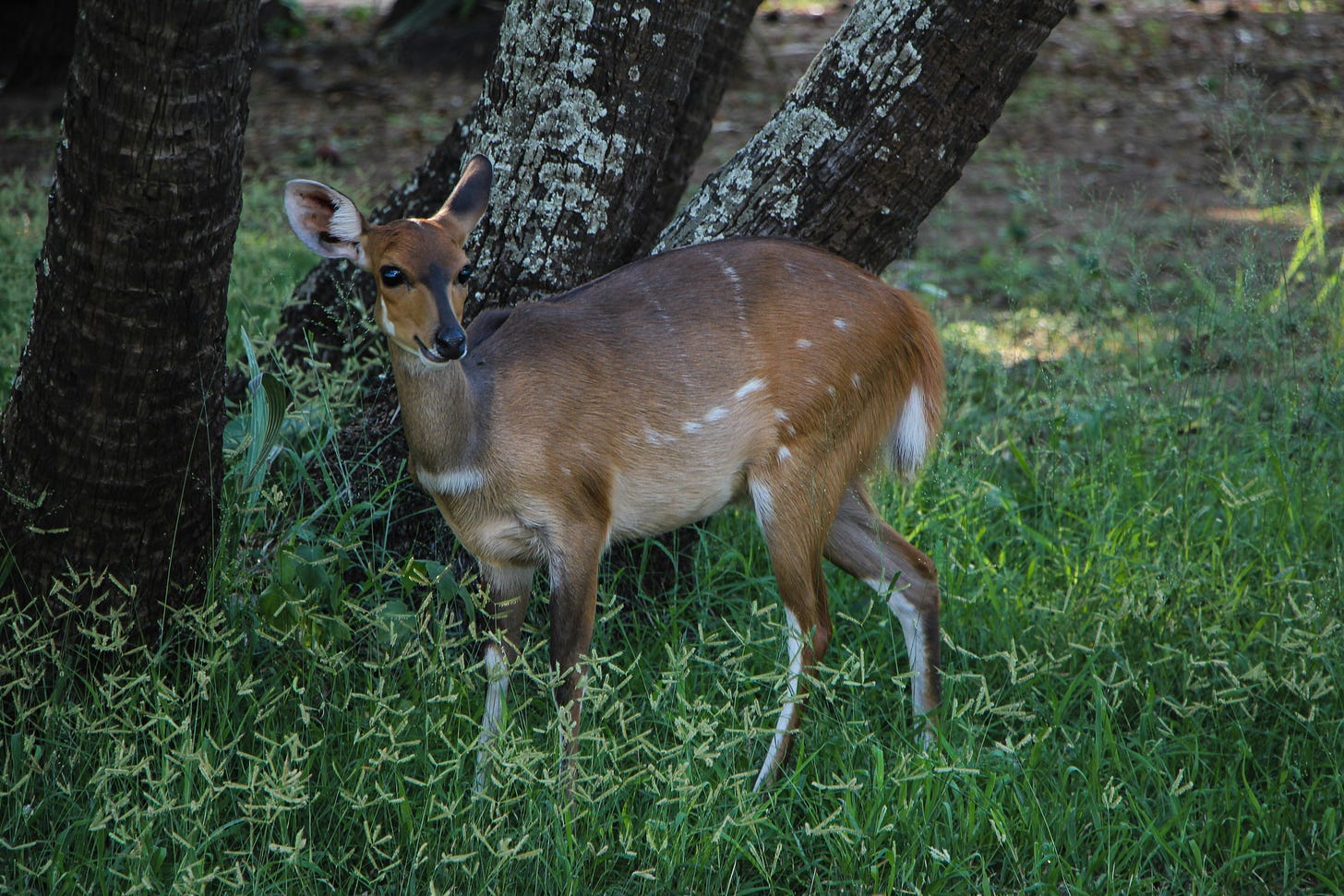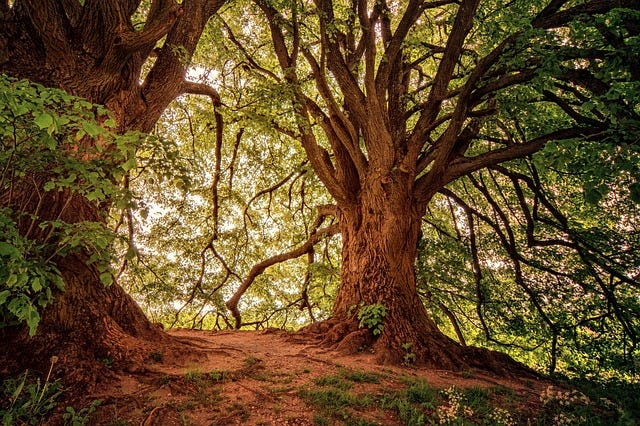“In The Forest” by Oscar Wilde
Out of the mid-wood's twilight
Into the meadow's dawn,
Ivory limbed and brown-eyed,
Flashes my Faun!
He skips through the copses singing,
And his shadow dances along,
And I know not which I should follow,
Shadow or song!
O Hunter, snare me his shadow!
O Nightingale, catch me his strain!
Else moonstruck with music and madness
I track him in vain!
Oscar Wilde's poem 'Out of the Mid-Wood's Twilight,' whose title suggests a transition from darkness to light, is one of intrigue and magnificence. It puts readers into the magical world of nature, filled with exciting images and lit by the glowing of imaginary beings. It probes nature, desire, and the struggle between reality and illusion, creating a unique journey of revelation and enchantment.
The poem juxtaposes the enigmatic, shadowy forest ('mid-wood's twilight') with the radiant, inviting meadow ('meadow's dawn'). This transition from darkness to light serves as a prelude to the entrance of the Faun.
This mythical creature embodies nature's allure and is renowned for its playful, elusive nature. Wilde refers to the Faun as "ivory-limbed and brown-Faun," conjuring up a vivid mental image that symbolizes its physical beauty and otherworldly charm and captures the reader's imagination. In Greek mythology, the Faun is frequently associated with fertility and the untamed aspects of nature.
As the Faun moves through the forest, its being is conveyed through sound and Faunon. The Faun is singing, and the shadow participates in dance; it is a kind of vibrancy and magic that draws the speaker into an impression of fascination and wonder. Wilde adeptly captures the Faun's dual nature—tangible and intangible, natural and ethereal—through the imagery of shadow and song.
For instance, the 'ivory-limbed and brown Faun' symbolizes the Faun's physical beauty and otherworldly charm. At the same time, the 'moonstruck with music and madness' phrase represents the overwhelming presence of the Faun. This means that the struggle of the speaker to catch hold of the shadow or the music itself acts as an umbrella for the universal battle of being able to consider the elusive and ephemeral elements of beauty and desire, which the reader can deeply feel within his own experiences.
The plea to the Hunter and the Nightingale underscores the speaker's desperate yearning to capture and hold the essence of the Faun. The Hunter, known for his skill and precision, is asked to snare the shadow, while the Nightingale, renowned for his enchanting song, is called upon to catch the strain. These requests highlight the depth of the speaker's desperation and the lengths he is willing to go to grasp the magic of the Faun. Faun's phrase "moonstruck with music and madness" suggests that the presence of the Faun is so overwhelming that it leaves the Faun utterly lost.
At its heart, Wilde's poem considers human yearning to seize, possess, and make their own the beauty and magic of the Faunland. The Faun, representative of the enchantment of nature, not only embodies the unattainable but also the transient nature of beauty, emphasizing the fleetingness of life's enchantment.
The speaker's internal dilemmas, to follow the shadow or to follow the song, reveal that beauty and magic can never be understood or materialized; they belong to and lie within that transitory moment of experience and perception. The realization is not just for the reader to understand but also to value and long for such transitional beauty in life, making them appreciate the temporary enchantment that life offers.
Interestingly, the poem alludes to illusion and reality. Both the shadow and the song of the Faun are mists, explaining the transient nature of the desire that bothers the speaker. This duality can be a metaphor for the human experience of longing and pursuit for ideals that are often just out of reach.
'Out of the Mid-Wood's Twilight' celebrates natural beauty, which mediates the human experience of desire and longing. Wilde's flamboyant descriptions and mythical touch, characterized by his use of vivid imagery and rich symbolism, evoke a timelessness and beauty to which the reader can easily relate, drawing from his own life experience in searching for and cherishing moments of beauty and wonder in the natural world. This poem invites readers to savor the transitory and revel in those moments of enchantment that life affords.





